"Holy shit!" I sputtered to my friend between laughs so rattling that I wished I at least had something to lean on. We were packed into a standing-room-only venue in Brooklyn at a show I'd thirstily bought tickets to almost a year prior: Broad City Live, an IRL spin on the wildly popular Comedy Central show about a pair of best lady friends in New York, starring the same young women who'd created it. As expected, we'd been graced with jokes so spot-on in their everyday relatability and yet fresh in their revelations –child-prodigy YouTube obsessions, a half-pound cookie habit – that the comedy had reached the level of communion. We were nodding our heads knowingly, wiping away tears of yasssss.
Abbi Jacobson and Ilana Glazer, the minds behind and stars of Broad City, are so beloved for their ability to tap into this very phenomenon that their DIY web series is now an Amy Poehler-producedhit on the verge of its third season.
The thing was, Abbi and Ilana hadn't yet walked on stage. No, the performer that had us in tears that night was their opening act, a writer on their show, and the best damn comedian you haven't heard of yet: Naomi Ekperigin.
And though you might not know her name, she's likely to have already made you laugh. In addition to working on all three seasons of Broad City, Ekperigin also wrote for the first season of Hulu's Difficult People starring podcast goddess Julie Klausner and tourist-harassing wiseass Billy Eichner. She's appeared on Totally Biased with W. Kamau Bell, taking Saturday Night Live to task over the lack of black women in its lineup, and on The Nightly Show, rhetorically tearing the Confederate flag to pieces with host Larry Wilmore.
Now, together with her fiancé, fellow comedian Andy Beckerman (known to fans of Ekperigin's standup as "Jewboo"), she's developing a pilot for TruTV called Inside Caucasia, "a comedic travelogue" where Ekperigin will take viewers on journeys through spaces typically considered "white"—and pick them apart. As a born-in-Harlem-Hospital New Yorker who went to Dalton, who toured with the National Theater of the Deaf and did a stint in Australia before deciding to hack it in New York's comedy scene, it's a role she's been prepping for her whole life. When we meet at a hipster café a few blocks from her apartment, it could be a dry run for the show.
"Welcome to New Harlem, Allie Tempus!" she greets me, taking a seat. Thirty seconds in, and she's already zeroed in on the absurdities of gentrified brunch. Ekperigin doesn't want a dry, crisp waffle, you see. She'd much rather make it herself and know what she's getting.
"Is it a thin waffle? Is it Belgian? Is it a waffle that eats like a meal or is it a waffle that's a sweet treat? I'm telling you! And you know what?" she rails, jokingly, but also kind of not. "I'm just the only one with the guts to say it."
Stay In The Know
Marie Claire email subscribers get intel on fashion and beauty trends, hot-off-the-press celebrity news, and more. Sign up here.
[youtube ]https://www.youtube.com/watch?v=mOeb7DsjDHE[/youtube]
What got you into comedy and performing?
I had wanted to be an actor from a very young age. I grew up in the 80s and 90s when there were tons of black TV shows. I grew up in a time with A Different World, Sister, Sister, Family Matters. It was like, I want to do that and there were tons of examples of it. As a child, my three things were reading, writing, and watching TV. My mother allowed the TV because I was also doing the reading and the writing. You know what I mean? She wasn't just putting me there to babysit me. I was into my shows. I knew all the actors' real names. I wrote scripts. I wrote letters to the people.
It wasn't until college that I found comedy and improv, with its immediacy. Especially in college, you just get up and say, "I'm doing this." I just didn't know how you got from that to being a star or anything.
So what was that next step?
It was really through standup that I started to get my opportunities as a performer and a writer. I mean, obviously, this coincided with the Internet growing up. One of the first Internet gigs I did was a College Humor video where I play both Michele Obama and Oprah. Which worked because they shot me from the shoulders down. It was early stuff like that where it'd be "We need you to pretend to be a famous black lady." I can't do impressions, but I'll be brown. So I took some of the early stuff. And doing standup when you're performing everywhere, you meet a bunch of people. It was through standup that I met Ilana and we developed a friendship. We met each other through shows. I was just like, "I like you, you crazy." She was like, "I like you, you're sassy." She didn't say sassy. But you know what I mean, we just kind of vibed.
How did that vibe that turn into a job?
All this time, I held a day job working at an art magazine. When that magazine folded in January 2013, I needed to do something. I got to do something with Ilana. Broad City was about to start up and that was May of 2013. She was like, "Hey, I would love for you to interview for this position. It's just to get your foot in the door. I don't think it'll pay much." I said, "Yes, please and thank you. You don't have to sell this. I'm there." But standup is what feeds me.
You've told me the feeling standup gives you is how you know its what you're supposed to be doing.
Oh, it all clicks into place. It all clicks into place. Even now, I would say what it's shown me is that I've grown. Even when the show's not great, it still feels that way.
Early on, if I did badly, I would blame myself. Then I remember, male comics saying it was just the crowd. I remember being like, "Do not blame the audience. If they didn't like you, that's on you." Now I've been doing this for eight years, and you can have audiences that are just not on board. That doesn't mean that you're not a good comic. You could have an audience that's just not feeling it. Especially because I like to talk about race. You've got to be in a certain frame of mind.
Did you ever think going into comedy that it would become a kind of activism for you?
I don't think so. I will say this though, you learn early on, or at least I did, at one of my first shows or first open mics, where, "I'm the only woman on this bill." Or, "I'm the only black woman on this bill." That automatically sets you apart. Not necessarily as bad or good but people will remember you. Even when I was in Australia doing shows, you know everybody remembered the black American. You stick in people's minds. Especially when the entire line up is white dude with brown hair, white dude with brown hair, white dude with brown hair, white dude with brown hair and a beard.
There's a bigger likelihood that what you're going to say is going to be remembered. Then the question is, what do you have to say?
You end up getting a little more responsibility. There's a bigger likelihood that what you're going to say is going to be remembered. Then the question is, what do you have to say?
Do you feel the weight of that, especially in this political moment?
There is a lot more public outcry now, but I do not feel that the actual events that are taking place are actually new. There's always been a lack of diversity in television and film, both in front of and behind the camera, in the writer's room, on the page.
Now as we have more and more channels and streaming services and more and more content, you're like, wait a minute, this is personal. Before when there were just two, four, six and seven options, you could say, well, there are not that many. We just do what we can and we've got to reach the biggest audience possible. But as the minority becomes the majority and as there are more and more outlets, the lack of diversity at those outlets is very striking and you can't help but take notice.
Likewise, there have always been attacks against black men just for being black men. There have always been attacks against black women just for being black women. What we have now are camera phones and Twitter and Instagram. It's easy for somebody to witness a moment and share it with the world instantly. That is more galvanizing. But the actual incidence is not new.
When you watch the collective outcry, what is to be done? Given my skill set, what is to be done is to talk about it in a way that's humorous. For me, if people are laughing, they're listening. I would never classify myself as a political person. But, I definitely consider personal experience is worth sharing.
For me, if people are laughing, they're listening.
You don't shy away from politics when it intersects with the personal.
My comedy is personal stories, anecdotes, experiences, observations. If you can make it funny, you can make it bearable. If we just sit in this shit and take it at face value, I'm not sure about you, but I'm going to crawl under a rock and die. This is horrible. This is hopeless. What do I do? If there's any way that you can make it something that people can take in regardless of their background, then you're kind of doing something.
Nobody should have to be a representative of their race. It's like, why would I ever have anyone take what I say as gospel? Which is why as a comedian, I'm sticking to my experience. Of course, I think a lot of things intersect as I'm engaged to a white guy. I have the private school upbringing. I grew up from a very early age knowing I was "other."
What was Dalton like for you then?
I was one of six black kids in a class of 118. I had grown up in Harlem. My mom's from Detroit, and aside from visiting there, I knew white people from television. From Boy Meets World. My Nickelodeon was not black. You're younger than me, but Nickelodeon would do their after-school block of shows like Hey Dude, Salute your Shorts…
The Adventures of Pete & Pete...
Right. Those were my whites. They had wacky misadventures. I always tell people. This is the thing I got from Dalton, right? If you spend your formative years around rich mean girls, no one else scares you. It was trial by fire. I could go into any situation now, especially as I get further and further into this industry, I'm back in spaces where I am one of the only people of color.
Your experiences of feeling like an outsider, hanging out on the edges of scenes and honing in on the minutiae and the specifics, I can see how its influenced your comedy and made it brilliantly relatable. I feel the same way when I'm watching Broad City, that thrill of commiseration.
It's all about the details. It's all about specificity and the more specific you are, the more personal you are. You know what I mean? To me, I think what can work in my standup is that even if the specific thing itself doesn't resonate with you, the emotion behind it resonates with you. They know what it's like to be very much planning your day around Nutella. It's like, "Yes. I also have something very basic that means way too much to me."
My idea of a good time would be tweeting my TV procedurals. But then everyone will know I watch procedural. So I kept it to myself. Then I started talking about it on stage. I do that, and half the audience starts clapping. I'm like, there's a reason this shit's popular. I can't be the only one watching it. Obviously too, my watching of those shows is filtered through the lens of being a black lady. So, you know, I'm like, every episode's a white girl in peril. Can we talk about that? You don't notice this truth? That opens it up.
So, Broad City is coming back on February 17th. What can we expect from Abbi and Ilana this season?
There's opportunity for more. Even before this third season, they already knew they have two more coming. That sets you up in a nice comfortable, confident place.
Because there are already two seasons that firmly ground you in their friendship, you can see them go through more stuff separately, as well as together. Now that you really get these girls and what they're about, you're willing to kind of separate one from the other for half an episode.
So there will be less Abbi and Ilana do this thing together. It's more like Abbi's going to do this and Ilana's going to do this. There's going to be a little more weaving in and out. More individual growth. More of Abbi's work life.
A lot of reviews have discussed the characters on Broad City or Difficult People as unlikeable or, in the case of Abbi and Ilana, as stoners or slackers. For me and my friends, and I'm sure for other young viewers, those aspects of their lives and personalities are really just background. Why do you think those things have been the focus of the media attention?
I think it's how the world of the show responds to the characters. If the world of the show responds to those characters in a real way which is, "are you fucking kidding me?" Then they're kind of taking on the role of the audience member. I think as long as there's a real response to the behavior, then it's okay. I think it's when the person is unlikable and there's no repercussion, you're like, why the fuck would I watch this? I don't like to watch shows about people who are just awful. They have to have their comeuppance. They have to try to do better. Or else I do not have the patience for it.
And I think Abbi and Ilana are called slackers because you see them smoke weed. That's it. You never see young women smoking weed. The fact that they do that with some regularity it's like, "They're stoners."
If anything, what they are is trying to make their own way. There's a whole episode where Ilana's trying to do her taxes. That's not stoner. The whole premise of that is I'm not going to let my parents do this. I'm going to try to do this myself.
People just aren't used to seeing women being messy. They just have a hard time accepting that. Except for the dramas. Drama is real. A woman with a past, making mistakes, possibly bisexual. They love it. In the world of comedy, it's like, they have to be fun and likable. You know what I mean? I think that Girls gets that same push back like, "They're awful." I don't know about you, but I know many people who are awful. It's an accurate reflection of reality.
My next great push is for women of color to be allowed to be that flawed, to be potheads, and to be aimless. Aimless is the key word.
People love flawed anti-heroes these days, but only when they're straight white dudes.
My next great push is for women of color to be allowed to be that flawed, to be potheads, and to be aimless. Aimless is the key word. We have all the women trying to find themselves. But, if you're a black woman on TV, you better be running a damn empire, sleeping with the President, saving people's lives, teaching people law. You have to have a very strong skill.
Follow Marie Claire on Instagram for the latest celeb news, pretty pics, funny stuff, and an insider POV.
Alexandra Tempus has written on climate, politics and pop culture for Jezebel, Rolling Stone, Vice, Al Jazeera America and more. She was a lead researcher on Naomi Klein’s NYT bestseller This Changes Everything: Capitalism vs The Climate. TV is her only escape from existential horror.
-
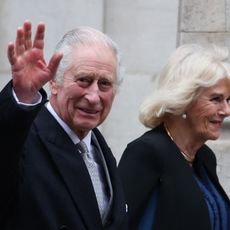 Amid Dire Reports About His Health, the Palace Issues a Wide-Ranging Update on King Charles
Amid Dire Reports About His Health, the Palace Issues a Wide-Ranging Update on King CharlesThe news was accompanied by a never-before-seen photo of the King and Queen Camilla, taken the day after their 19th wedding anniversary this month.
By Rachel Burchfield Published
-
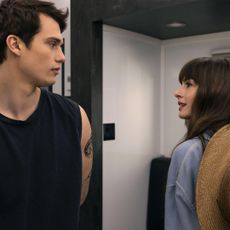 Anne Hathaway Says This ‘The Idea of You’ Sex Scene Is the “North Star” for “Cinematic Sex”
Anne Hathaway Says This ‘The Idea of You’ Sex Scene Is the “North Star” for “Cinematic Sex”The actress said it “makes it about her pleasure.”
By Danielle Campoamor Published
-
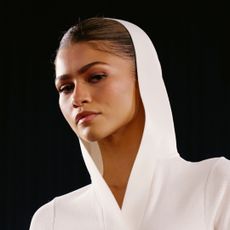 Zendaya Says She's Waiting for the "Right Timing" to Release New Music
Zendaya Says She's Waiting for the "Right Timing" to Release New Music"If there was a moment, maybe I would, you know, put out a little something."
By Danielle Campoamor Published
-
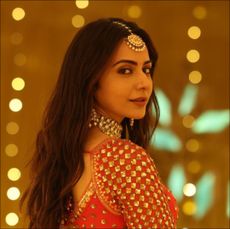 The Best Bollywood Movies of 2023 (So Far)
The Best Bollywood Movies of 2023 (So Far)Including one that just might fill the Riverdale-shaped hole in your heart.
By Andrea Park Published
-
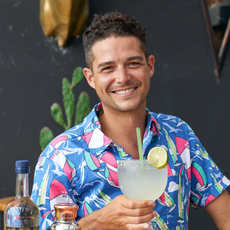 ‘Bachelor in Paradise’ 2023: Everything We Know
‘Bachelor in Paradise’ 2023: Everything We KnowCue up Mike Reno and Ann Wilson’s “Almost Paradise."
By Andrea Park Last updated
-
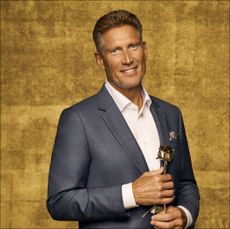 Who Is Gerry Turner, the ‘Golden Bachelor’?
Who Is Gerry Turner, the ‘Golden Bachelor’?The Indiana native is the first senior citizen to join Bachelor Nation.
By Andrea Park Last updated
-
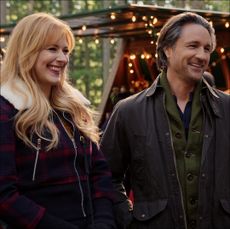 ‘Virgin River’ Season 6: Everything We Know
‘Virgin River’ Season 6: Everything We KnowHere's everything we know on the upcoming episodes.
By Andrea Park Last updated
-
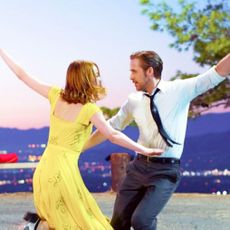 The 60 Best Musical Movies of All Time
The 60 Best Musical Movies of All TimeAll the dance numbers! All the show tunes!
By Amanda Mitchell Last updated
-
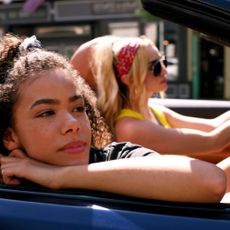 'Ginny & Georgia' Season 2: Everything We Know
'Ginny & Georgia' Season 2: Everything We KnowNetflix owes us answers after that ending.
By Zoe Guy Last updated
-
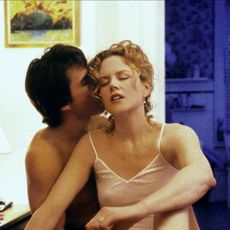 35 Nude Movies With Porn-Level Nudity
35 Nude Movies With Porn-Level NudityLots of steamy nudity ahead.
By Kayleigh Roberts Last updated
-
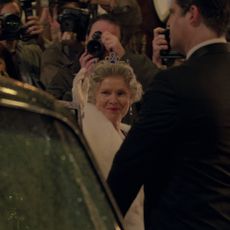 The Cast of 'The Crown' Season 5: Your Guide
The Cast of 'The Crown' Season 5: Your GuideThe Mountbatten-Windsors have been recast—again.
By Andrea Park Published